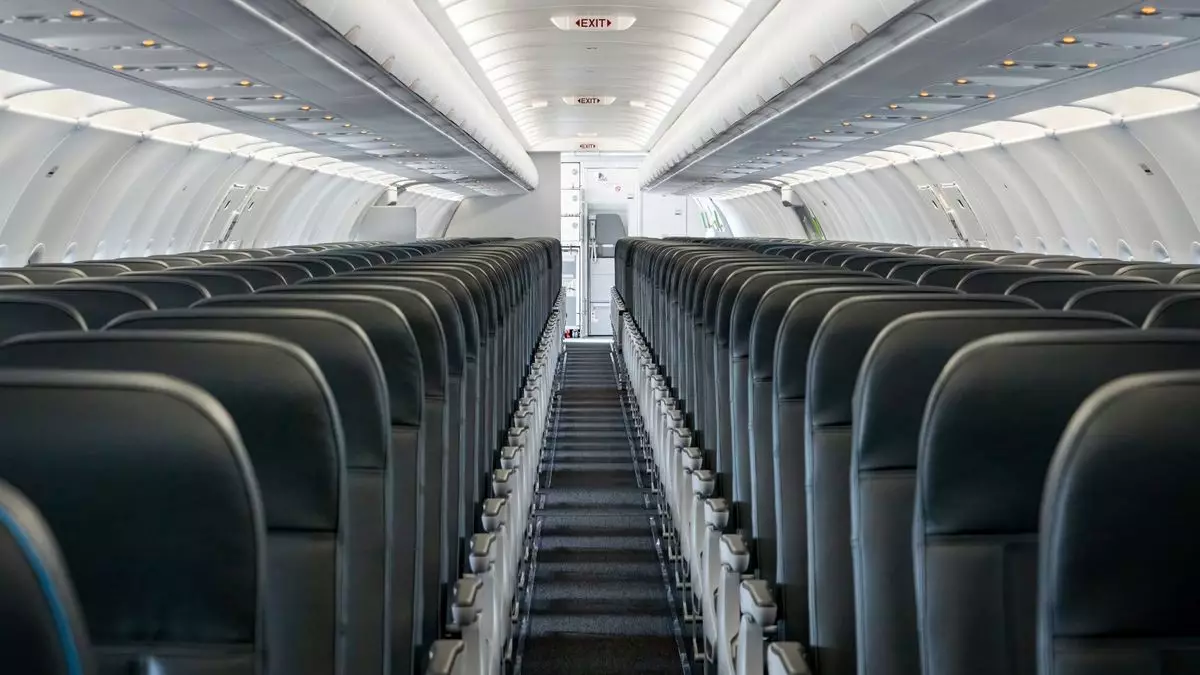In recent years, the airline industry’s practice of charging fees for seat selection has emerged as a significant revenue stream. Five major U.S. airlines—Delta, United, American, Spirit, and Frontier—reported a remarkable total of $12.4 billion in seat-selection revenue from 2018 to 2023. According to a report by the Senate Permanent Subcommittee on Investigations, this figure ranks as the second-largest source of ancillary revenue, trailing only baggage fees. The public disclosure of this information sheds light on an industry trend that has been quietly evolving since airlines began implementing such fees in 2006.
The report highlights a growing reliance on ancillary fees, indicating a shift in how airlines generate revenue beyond traditional ticket sales. Seat-selection charges have transformed from mere optional extras into a mainstream income source that carriers are strategically leveraging. With the ever-increasing operational costs and competitive pressure to maintain ticket prices, airlines view these fees as essential to enhance profitability.
Despite the windfall from seat-selection fees, concerns have surfaced regarding the manner in which these revenues are reported and taxed. The findings suggest significant discrepancies among airlines in how they classify these fees in their financial reporting. While Delta and American airlines comply with the 7.5% federal air transportation excise tax—similar to that enforced on ticket pricing—Spirit, Frontier, and United have exploited regulatory loopholes by classifying seat fees as ancillary revenue, thereby incurring lower effective tax rates. The report revealed staggering differences: United pays 4.8% in taxes, Frontier only 3.1%, and Spirit a mere 2.5%.
This disparity raises substantive questions about the fairness and transparency of the airline industry’s practices. Intentionally structuring fees to evade higher tax rates could also erode public trust and calls into question whether current excise tax regulations adequately reflect the evolving landscape of air travel revenue generation. The subcommittee has made recommendations urging Congress to legislate measures requiring airlines to submit comprehensive data on seat-revenue collection, which reflects a pressing need for clarity and accountability.
As airlines increasingly capitalize on seat-selection fees, market competition appears to be influencing fee structures significantly. Notably, Spirit Airlines experienced the most pronounced increase in seat-selection revenue, which constituted 6.6% of its total income in 2023, up from 5% in 2018. This spike demonstrates the ultralow-cost carrier’s aggressive pricing strategies aimed at maximizing ancillary revenues to offset lower ticket prices.
Conversely, Delta Airlines, which has the lowest dependency on seat-selection fees—accounting for just 0.3% of total revenue—presents a counter-example of a carrier almost reluctantly participating in ancillary revenue tactics. This variance highlights how different business models impact revenue streams. It could reflect on branding strategies, market positioning, and customer service philosophies that dictate how airlines opt to generate income.
Another area of scrutiny surrounding these fees relates to transparency and the impact on the consumer experience. The Senate report criticized the way some airlines, particularly Spirit, reveal seating fees only after customers have provided personal information. This practice has raised ethical concerns regarding the integrity of airline pricing strategies, as potential customers may feel cornered into making decisions without initially understanding the full breakdown of costs.
Moreover, the subcommittee’s investigation revealed troubling practices in incentivizing personnel to collect fees for carry-on baggage, especially at airlines like Spirit and Frontier. The incentives led to substantial payouts to gate agents, which could potentially encourage questionable enforcement of baggage policies. It results in frustration for travelers who may find themselves unfairly charged for carry-on bags due to unclear definitions of what constitutes a free personal item. The Consumer Financial Protection Bureau has noted this issue, signaling a need for regulatory scrutiny to ensure fairness in pricing and compliance with existing regulations.
As airlines navigate the landscape of ancillary revenues amid growing competition and scrutiny, the future may see shifts in how fees are implemented and reported. The evolving nature of consumer expectations, combined with increased regulatory oversight, will undoubtedly shape the industry’s strategic approaches moving forward. Airlines may need to consider innovative alternatives that enhance transparency and fairness while still meeting financial objectives.
In a world where every dollar counts, the airline industry’s potent reliance on ancillary fees such as seat selection is unlikely to diminish. However, balancing profitability with ethical practices and customer satisfaction will ultimately dictate long-term success. As public awareness grows regarding these issues, the onus falls on airlines to ensure they don’t only seek profit through fees but also foster trust with their customers through transparency and fair practices. The collective impact of these changes will chart the course of airline revenue strategy for years to come.


Leave a Reply